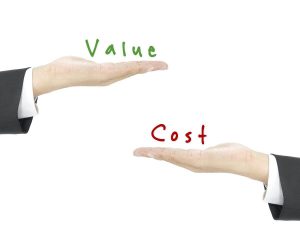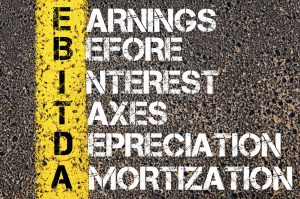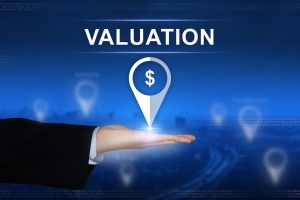 I frequently receive requests to quickly value a business by applying a “rule of thumb”, that is, application of a simple formula to the gross or net income of a business to determine its value. The value of a business is based on two factors: cash flow and risk. Using a rule of thumb to value a business considers neither.
I frequently receive requests to quickly value a business by applying a “rule of thumb”, that is, application of a simple formula to the gross or net income of a business to determine its value. The value of a business is based on two factors: cash flow and risk. Using a rule of thumb to value a business considers neither.
Rules of thumb are old wives’ tales of business valuation; no one knows where they come from or the basis upon which they were derived.
How rules of thumb get it wrong
As a simple example, consider two hypothetical businesses in the same industry (Company A and Company B). Each has $2 million of sales and $400,000 net income. Using a rule of thumb would result in both businesses having the same value. But what if all of Company A’s sales came from a single customer, and Company B’s sales consisted of $100,000 each to twenty customers. Which company is more valuable? Company A clearly has more risk because the loss of a single customer would put it out of business. However, this factor, and many similar factors, are never considered by rules of thumb.
In determining what they will pay for a business, investors consider projected cash flow and risk that projected cash flow will not be realized. A fair market value buyer pays for cash flow; the greater the cash flow the more the buyer will pay. Cash flow includes funds available for distribution during the period of ownership, as well as the amount received upon the sale of the business. The cash flow is discounted at a rate based on risk; the greater the risk the higher the discount rate and the lower the business value.
Risks to consider
Risks common to many businesses include customer and/or supplier concentration, competition, lack of management depth, and product obsolescence. This list is not all inclusive as most businesses are unique and may face other risks not mentioned.
We’ve got your back
Estimating the value of a business requires thorough analysis of the business, the industry, the marketplace, and the economy. If you want to know the value of a business, don’t use a rule of thumb; engage a business valuation professional. You will be glad you did.

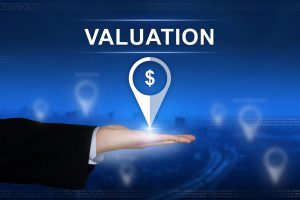 Defining “value” can help you avoid negative consequences
Defining “value” can help you avoid negative consequences As evident from these questions, the thing to focus on is the future. Although the seller will certainly focus on past performance, what happened twenty, ten, or five years ago is of little significance; you want to know what will happen in the future.
As evident from these questions, the thing to focus on is the future. Although the seller will certainly focus on past performance, what happened twenty, ten, or five years ago is of little significance; you want to know what will happen in the future.




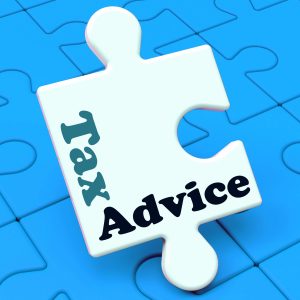 In a business sale, the seller prefers to sell the stock representing the business ownership, but the buyer prefers to purchase the assets of the corporation. The seller wants a stock sale because it generates a capital gain, taxed at a 20% rate. The buyer prefers to purchase the assets because the full purchase price is allocated to the assets purchased, creating tax deductions for depreciation and amortization. In a stock purchase, the buyer steps into the seller’s shoes, receiving no tax benefit from the price paid until the business is sold. This issue is usually resolved by compromise, sometimes involving a price adjustment.
In a business sale, the seller prefers to sell the stock representing the business ownership, but the buyer prefers to purchase the assets of the corporation. The seller wants a stock sale because it generates a capital gain, taxed at a 20% rate. The buyer prefers to purchase the assets because the full purchase price is allocated to the assets purchased, creating tax deductions for depreciation and amortization. In a stock purchase, the buyer steps into the seller’s shoes, receiving no tax benefit from the price paid until the business is sold. This issue is usually resolved by compromise, sometimes involving a price adjustment.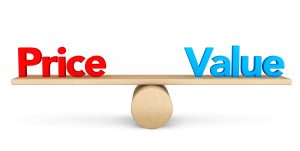 It is unlikely that any single action will result in a significant increase in cash flow, but the here are some areas where improvement may be achieved:
It is unlikely that any single action will result in a significant increase in cash flow, but the here are some areas where improvement may be achieved: Buying a business is an investment decision, no different than buying stock in a publicly traded company. When investing in public company, you consider two factors; how much can you expect to receive in dividends and what do you expect the stock price to be when you sell. Not all stocks pay dividends, but absolutely no sane person would purchase stock in a company if they expected the share price to go down during their period of ownership.
Buying a business is an investment decision, no different than buying stock in a publicly traded company. When investing in public company, you consider two factors; how much can you expect to receive in dividends and what do you expect the stock price to be when you sell. Not all stocks pay dividends, but absolutely no sane person would purchase stock in a company if they expected the share price to go down during their period of ownership.